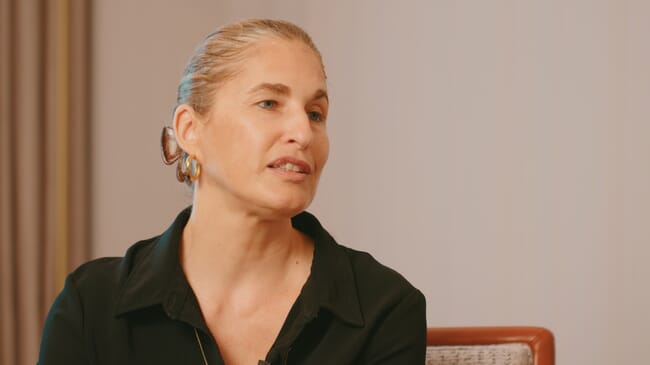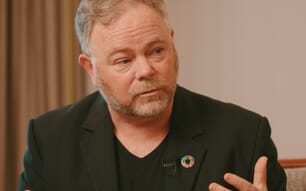
The interview is part of a new series filmed by The Fish Site’s team at dsm-firmenich’s recent Global Aqua Days event in Athens. And, in it Bonadei discusses some of the key digital trends and tools with The Fish Site’s Moritz Mueller.
With a background spanning agriculture, artificial intelligence and global operations, Bonadei joined dsm-firmenich seven years ago when the company had “zero digital.” Since then, she has overseen the development of digital services, customer portals, e-commerce, and precision tools that have transformed how farmers engage with technology.
According to Bonadei, aquaculture is significantly ahead of livestock farming in digital adoption, though still behind crop and machinery industries. While livestock farmers often rely on pen and paper, aquaculture has embraced data analytics, AI and advanced sensors to improve productivity and sustainability. She notes that cameras for feed optimisation, sensors and sustainability calculators are key drivers of change, helping producers reduce waste, improve efficiency, and measure environmental impact across parameters.
A striking example she cites is that producing one kilogram of salmon generates around eight kilograms of CO2, with 80 percent of emissions coming from feed production. By integrating feed additives and using local ingredients, she argues that farms can reduce their footprint while improving animal health and profitability.
Looking ahead, she sees regulatory pressures as a major catalyst for change, pointing out that countries like Ireland and Denmark are introducing strict targets and carbon taxes by 2030, making it urgent for the aquaculture sector to act. Retailers, too, are demanding reductions in greenhouse gases, offering financial incentives for CO2 savings. Bonadei believes collaboration across the value chain – from feed producers to supermarkets – will be essential to meet these goals.
For innovation, she points to opportunities in data analytics, machine learning and connectivity solutions, especially in remote aquaculture settings where internet access remains a barrier. However, she warns that startups in this field face challenges in monetisation and adoption, recommending partnerships with larger companies to provide stability.
Finally, Bonadei stresses that digital transformation is as much about people as it is about technology - with change management, clear communication of why transformation is necessary and leadership buy-in being crucial.







